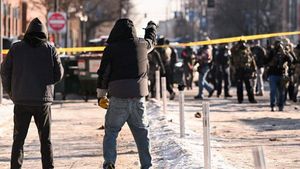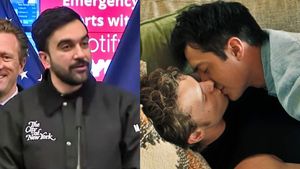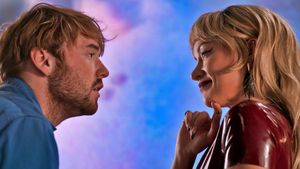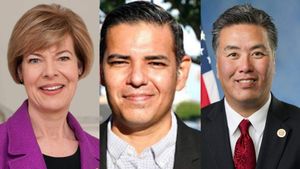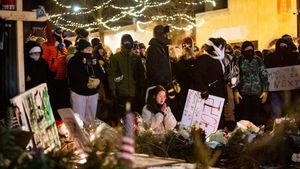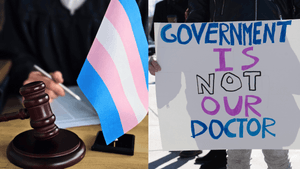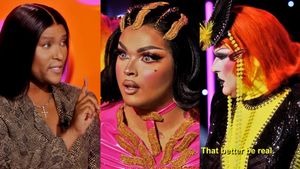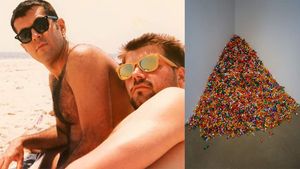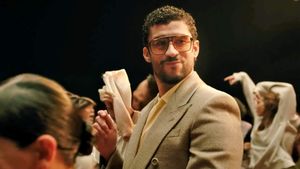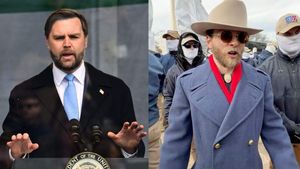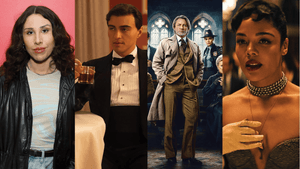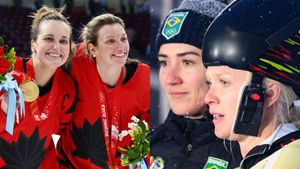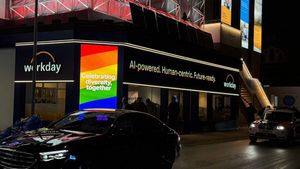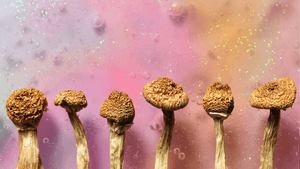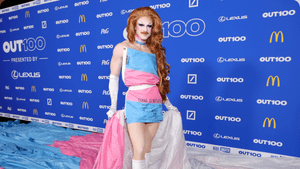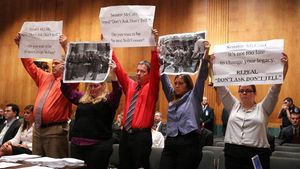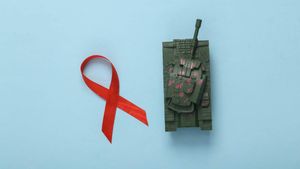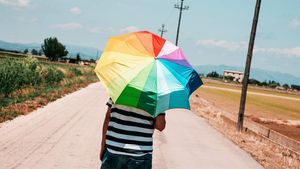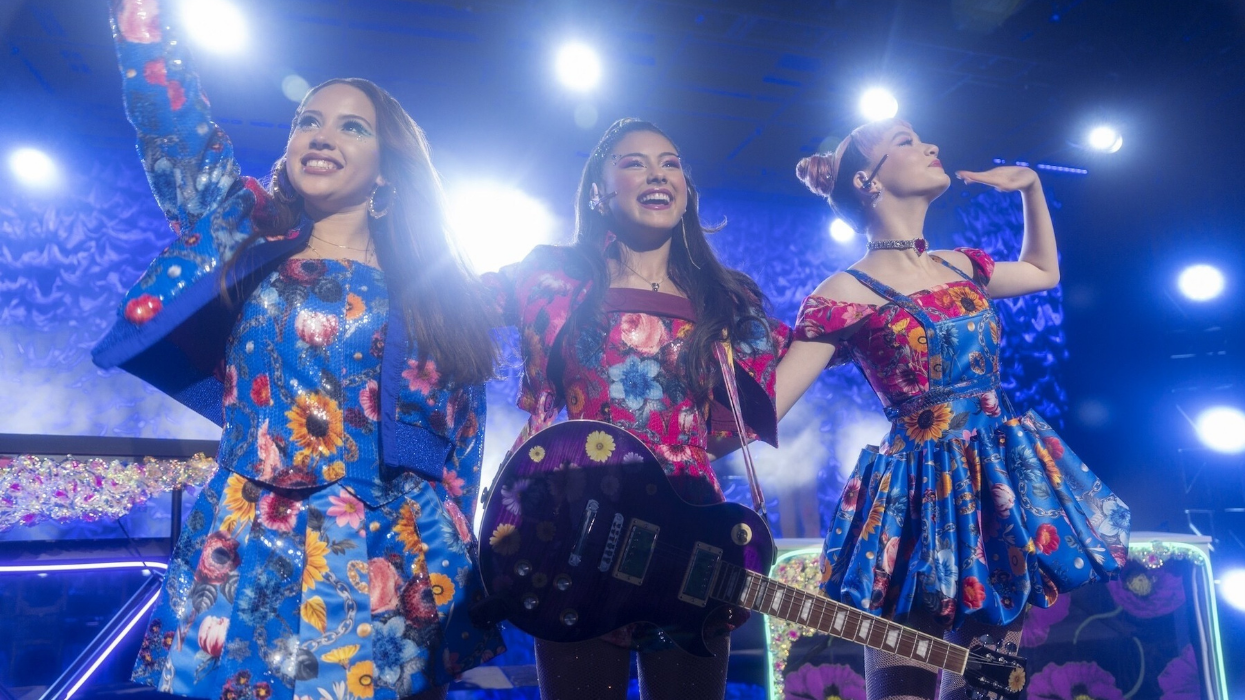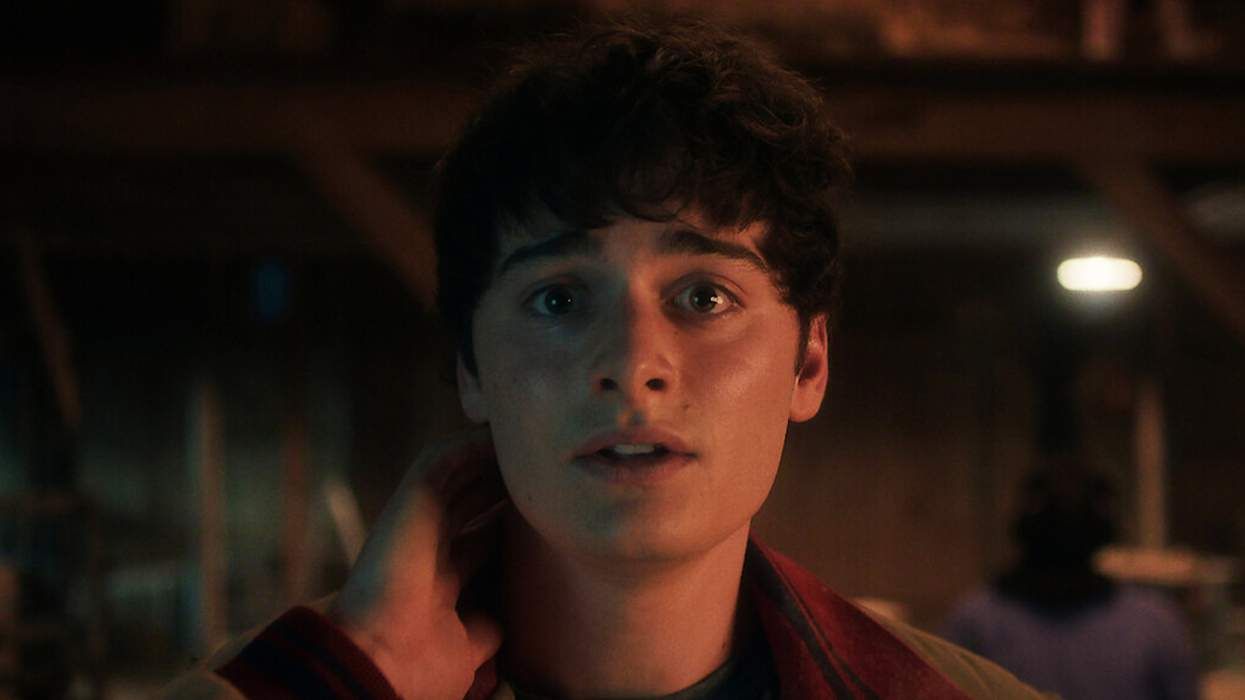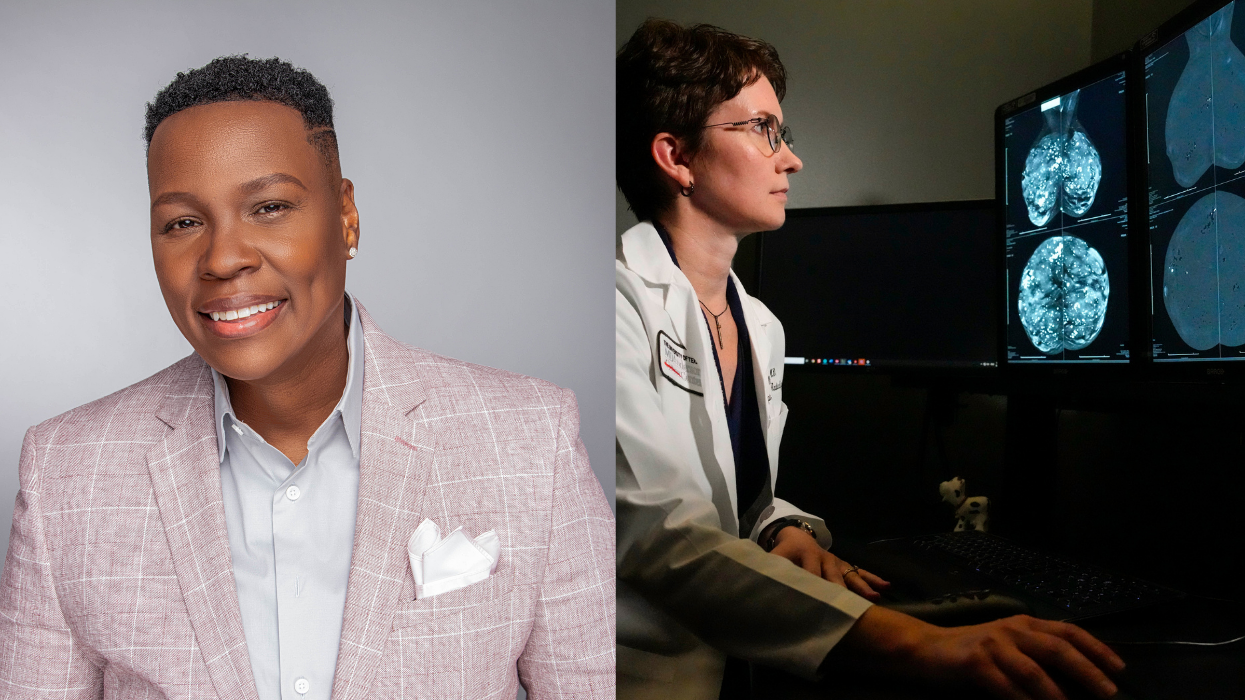Happy Disability Pride Month!
 13 LGBTQ+ disability activists who are changing the world one fight at a timeTibrina Hobson/Getty Images; Lia Toby/Getty Images; footage still via Instagram @jendeerinwater
13 LGBTQ+ disability activists who are changing the world one fight at a timeTibrina Hobson/Getty Images; Lia Toby/Getty Images; footage still via Instagram @jendeerinwaterThere are queer disabled celebrities who are using their fame to advocate for more rights and better representation in media and shows that are starting to do a better job of including queer disabled characters, but it’s the LGBTQ+ disabled activists who are fighting for years on end to help improve the lives of queer disabled people across the country.
Intersectionality is so important, and these queer and disabled activists and advocates have a deep and intrinsic understanding of just how true that is. So to celebrate Disability Pride Month, which coincides with the anniversary of the passing of the Americans with Disabilities Act, we’re shouting out the trailblazing activists who have spent their careers fighting for the rights of the queer and disabled communities.
Nicole Adler
Nicole Adler has been a trailblazer since she was a teenager. At just 19 years old, she was the youngest governor-appointed council member to serve on the California State Council on Developmental Disabilities. As a gay woman with Down syndrome, she has spent her life as a fierce advocate for the LGBTQ+ and disability communities. Then, at 29, she made history again as the first San Francisco Pride Community Grand Marshal with Down syndrome in 2024.
“It’s a huge honor to represent both the disability and LGBTQ communities. I get to carry the torch and show others that anything is possible if you believe in yourself,” Adler said at the Pride celebration that hosted over 400,000 attendees, KGET reported.
Corbett O’Toole
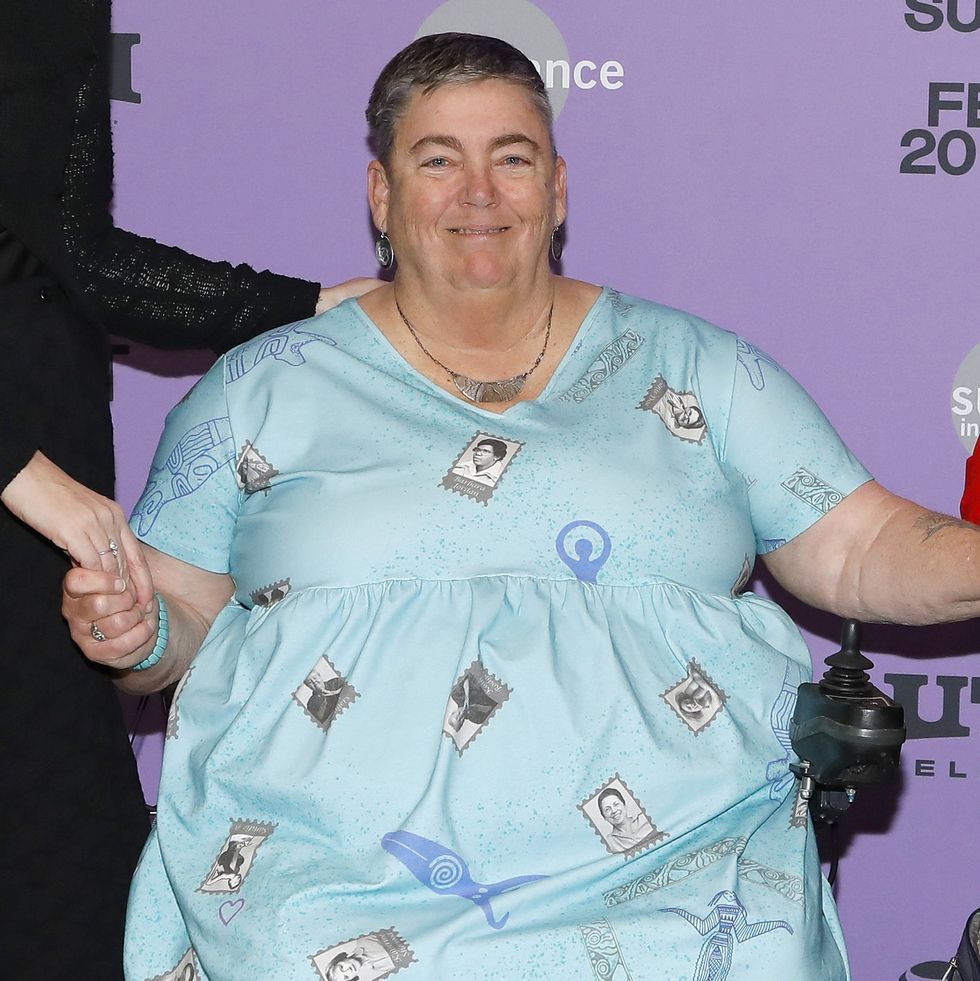
Corbett O'Toole
Tibrina Hobson/Getty Images
Corbett O’Toole has been a disability rights activist since the ‘70s, when she helped to run the Disabled Women’s Coalition and worked as a staff member at the Center for Independent Living. O’Toole, who calls herself a “queer disabled elder,” was a pioneer in the disability rights movement, including being one of the participants of the 25-day-long 504 Sit-In, where disability activists stormed into the federal Department of Health, Education, and Welfare, which resulted in the Carter administration signing the 504 regulations which prohibited entities receiving federal funds from discriminating against disabled people. She has continued her work as an activist and advocate in the decades since and in 2016 wrote Fading Scars: My Queer Disability History.
Morénike Giwa Onaiwu
Morénike Giwa Onaiwu is a disabled nonbinary woman of color who focuses her activism work on autism and HIV advocacy, and disability justice and inclusion. She is an editor of All the Weight of Our Dreams, an anthology of art and writing by Austin people of color, and is the founder and principal consultant of Advocacy Without Borders, a grassroots non-profit collaborative offering capacity development, research, DEIA activities, and related projects. She also serves as a public appointee on the Interagency Autism Coordinating Center, which is the US federal advisory committee on autism, and was also the first Black executive board of directors member of both the Autistic Self-Advocacy Network and Autistic Women and Nonbinary Network.
Jen Deerinwater
As a journalist and founder of Crushing Colonialism — an organization dedicated to uplifting indigenous voices — Jen Deerinwater’s activism is deeply rooted in her identity as a disabled, Two-Spirit, disabled Cherokee woman. Deerinwater’s work sheds light on the unique challenges faced by marginalized communities and the pervasive impacts of colonialism and discrimination in our society.
Julia Bascom
Julia Bascom is a queer autism rights activist who worked as the executive director of the Autism Self Advocacy Network from 2017 to 2023. Bascom has spent her career advocating for allowing autistic people to speak for themselves and make decisions about their health, rights, well-being, and sexual lives. During her time with ASAN, she helped to fight for disabled people's control over their own services, to save the Affordable Care Act, addressed police violence and structural racism, and fought against the school-to-prison pipeline, and against the use of electric shock devices to modify the behavior of disabled people. Bascom was one of the experts consulted to create the autistic character Julia for Sesame Street and founded the Loud Hands project that resulted in the groundbreaking anthology of essays written by autistic people, called Loud Hands: Autistic People, Speaking.
“Neurodiversity says people have different kinds of brains, and that’s OK. But it goes a step further. People with different brains have rights. We have a right to be here,” Bascom told The 19th. “We have a right to decide how we feel and how we should be treated. We have a right to [disability] accommodation. Neurodiversity isn’t just a biological fact. It’s an idea with teeth.”
Leah Lakshmi Piepzna-Samarasinha
Leah Lakshmi Piepzna-Samarasinha is a queer nonbinary disability activist, educator, and poet. They have been performing spoken word since 1998, and in 2001 Piepzna-Samarasinha started Browngirlworld after being frustrated by the racism that was present in queer and trans poetry spaces and the homophobia that was running rampant in the poetry scene from people of color. Piepzna-Samarasinha has published nine books, including Beyond Survival: Strategies and Stories from the Transformative Justice Movement, and has written for publications like Autostraddle, Bitch, and Vice.
Maxfield Sparrow
Maxfield Sparrow is a transmasc autism rights activist and artist who facilitates peer support groups for autistic adults through the Association for Autism and Neurodiversity, wrote The ABCs of Autism Acceptance, and edited the anthology Spectrums: Autistic Transgender People in Their Own Words. Sparrow also participated in the flash blog campaign called Autistic People Should… which was an act of activism meant to raise alarm bells about Google’s autocomplete feature that would complete that sentence with phrases like “die,” “be exterminated,” and “be killed.”
Lady Francesca
Lady Francesca has been changing hearts and minds and challenging people’s perception of drag, as the world’s first Black drag queen superstar with Down syndrome. Lady Francesca is a member of the internationally renowned drag troupe Drag Syndrome, which challenges societal perceptions and promotes inclusivity within the drag community. As a member of the troupe, Lady Francesca is helping to advocate for disability awareness and celebrate the beauty, diversity, and limitless possibilities of artistic expression.
Andrew Gurza
Andrew Gurza, who has cerebral palsy and came out as gay when they were 15, is a disability awareness consultant and activist who has spent their career focused on the intersection of disability and sexuality. Gurza has written about the need for disability-inclusive sex education, ableism in the queer community, and the barriers to healthcare faced by disabled people that can impact access to STI testing, in publications like HuffPost, Everyday Feminism, Men’s Health, Out, and them. Gurza is also well known for starting the #DisabledPeopleAreHot hashtag on X (formerly Twitter), and was featured in the documentary Picture This, which follows Gurza as they plan the Second Annual Deliciously Disabled Sex Positive Fully Accessible Play Party. In 2016, Garza started the podcast Disability After Dark, which focuses on disability and sexuality and has been going strong for more than 300 episodes now.
Eli Clare
Eli Clare is a genderqueer, trans man with cerebral palsy who is an activist, advocate, and author who works on the intersections between race, class, gender, sexuality, disability, and environmental justice and imagines a world without psych wards, group homes, and nursing homes. His books Brilliant Imperfection: Grappling with Cure, Exile and Pride, and The Marrow’s Telling are so well regarded they are used in classrooms across the country. Clare has also coordinated a rape prevention program, helped organize the first-ever Queerness and Disability Conference, and traveled through the U.S. and Canada, giving speeches and teaching.
Cal Montgomery
 Andrew Dell'Antonio
Andrew Dell'AntonioCal Montgomery is a trans, autistic, physically disabled activist and nonspeaking adult who writes and fights against institutionalized abuse of disabled youth, the need for greater support for students with cognitive disabilities, and for arming disabled kids with the skills to help them reduce their risk of harm when they are out in the world.
Noor Pervez
As a former student organizer turned LGBTQ+ educator, community organizer, and public speaker, Muslim nonbinary activist Noor Pervez focuses his efforts on the intersections of disability, race, gender identity, sexuality, and religion. Noor is the Community Engagement Manager for the Autism Self Advocacy Network, and is on the board as an accessibility leader at Masjid al Rabia, a queer, trans, and woman-centered and led mosque. Noor is also in the process of making an Easy Read translation of the Holy Qu’ran, designed to make learning about Islam accessible for people with intellectual and developmental disabilities.
Finn Gardiner
Finn Gardiner is a queer, Black disability activist and community organizer. Gardiner is the director of policy and advocacy at the Autistic People of Color Fund, and was part of the 2016 White House Forum on LGBT and Disability Issues and the 2019 United Nations World Autism Day event. He has focused his activism around antiracism and the intersection of gender, sexuality and disability where he fights for inclusive education, competitive and integrated employment, accessible technology, cognitive accessibility, housing justice, and community living.



